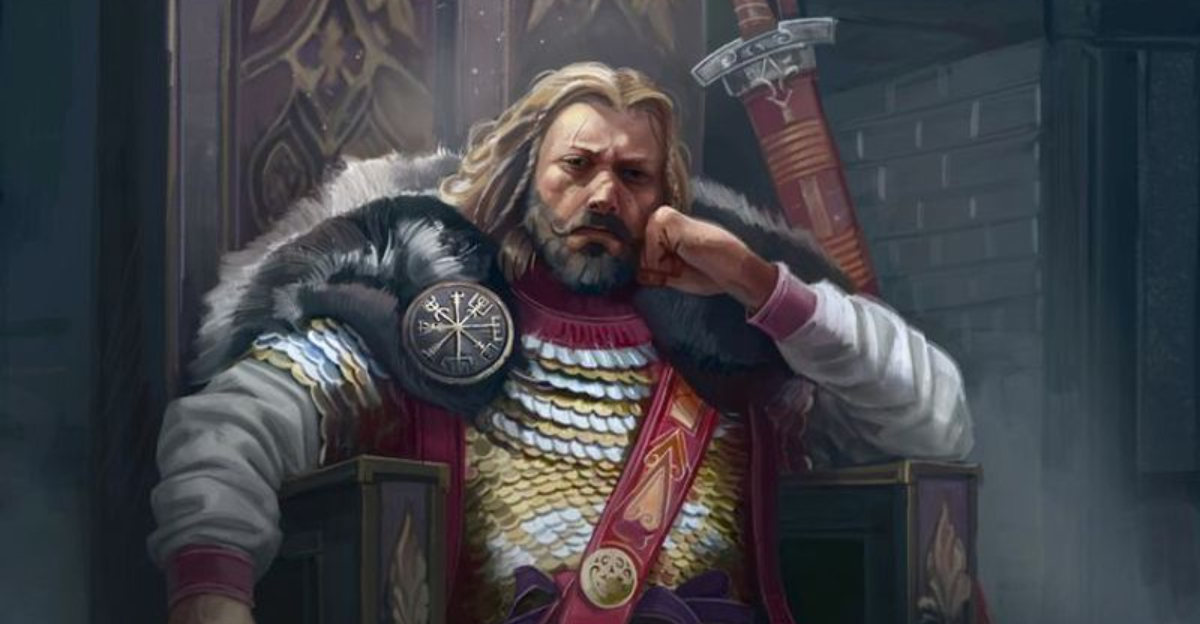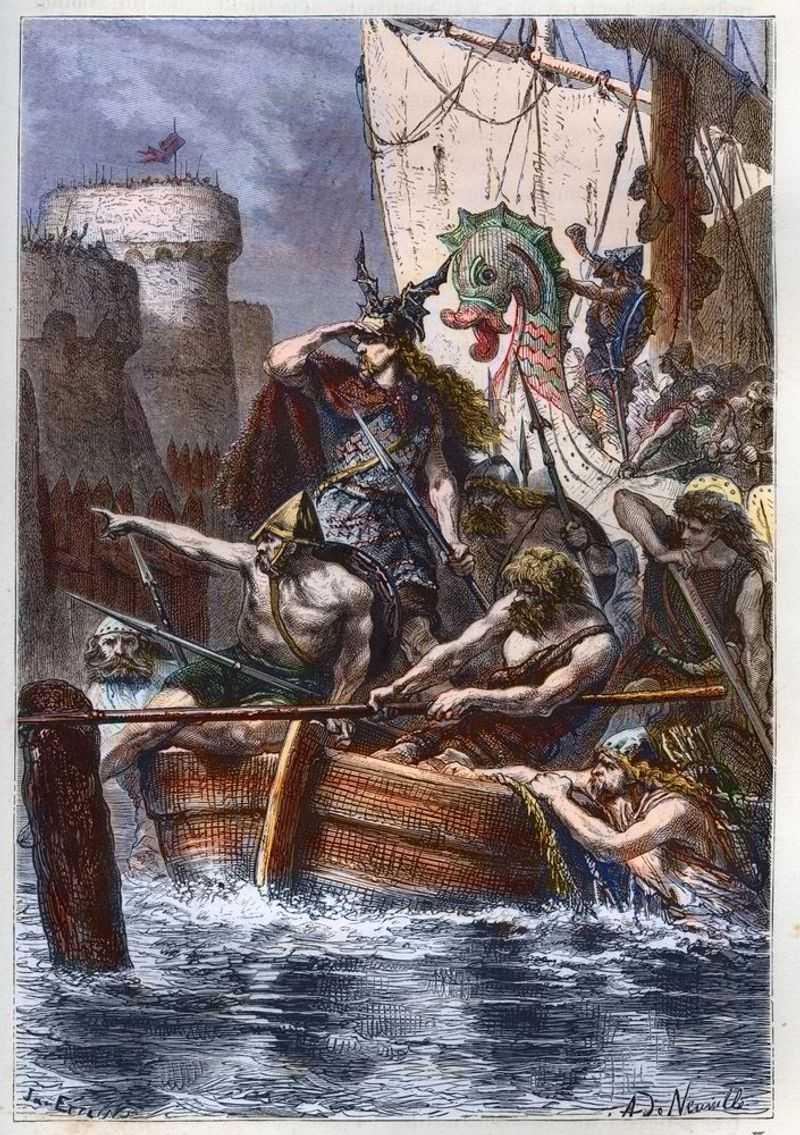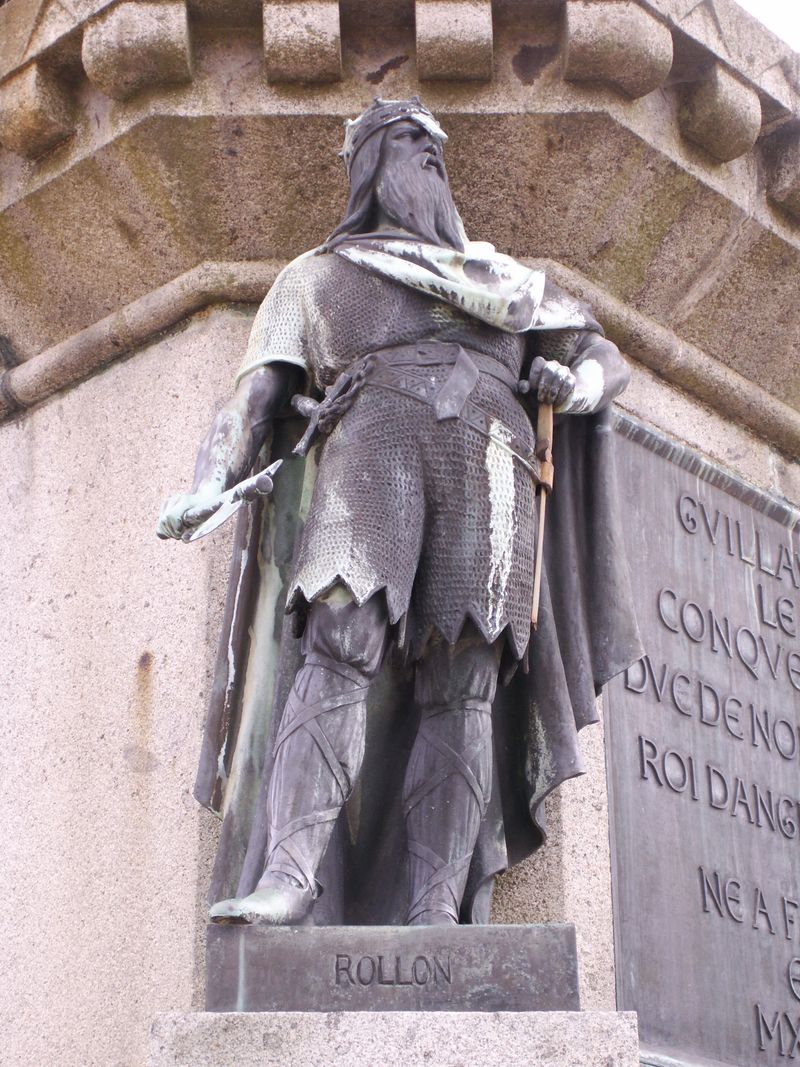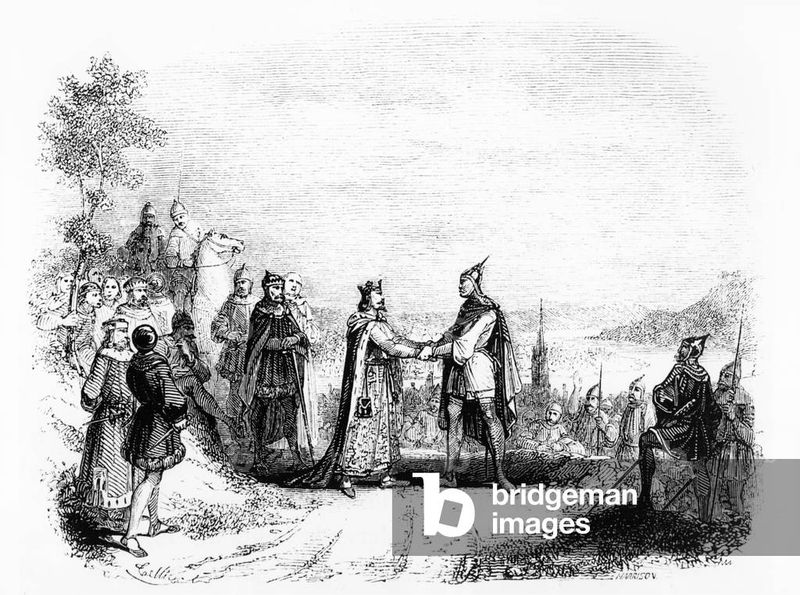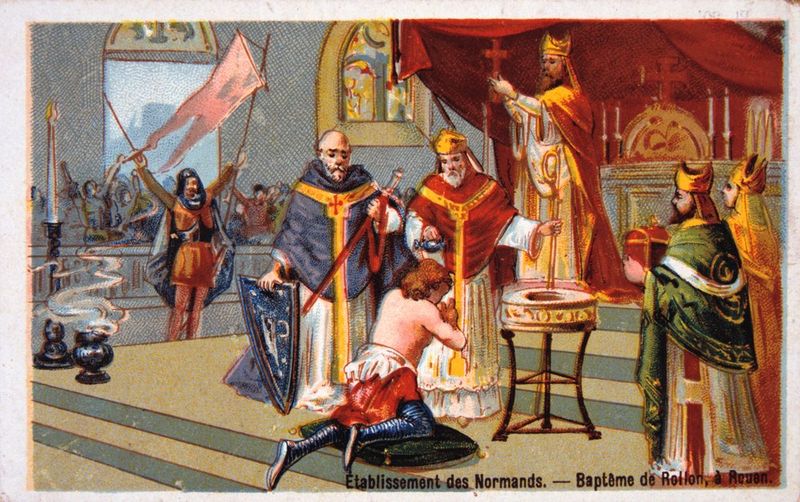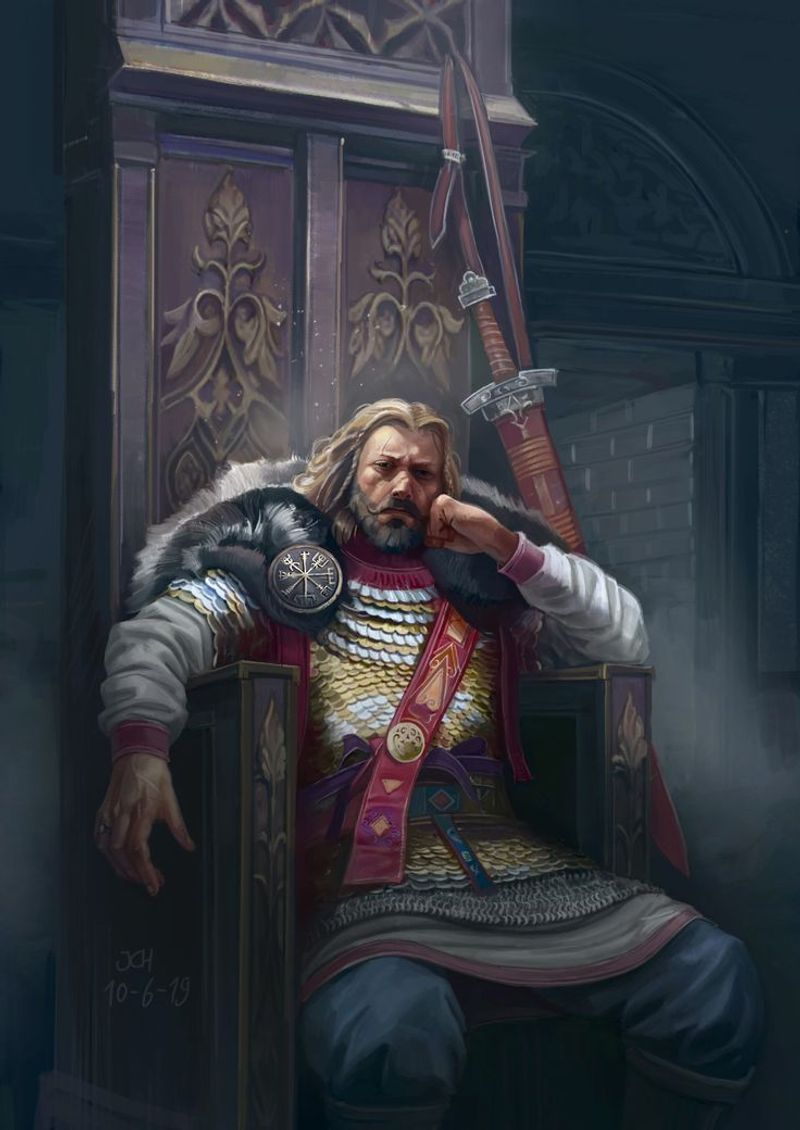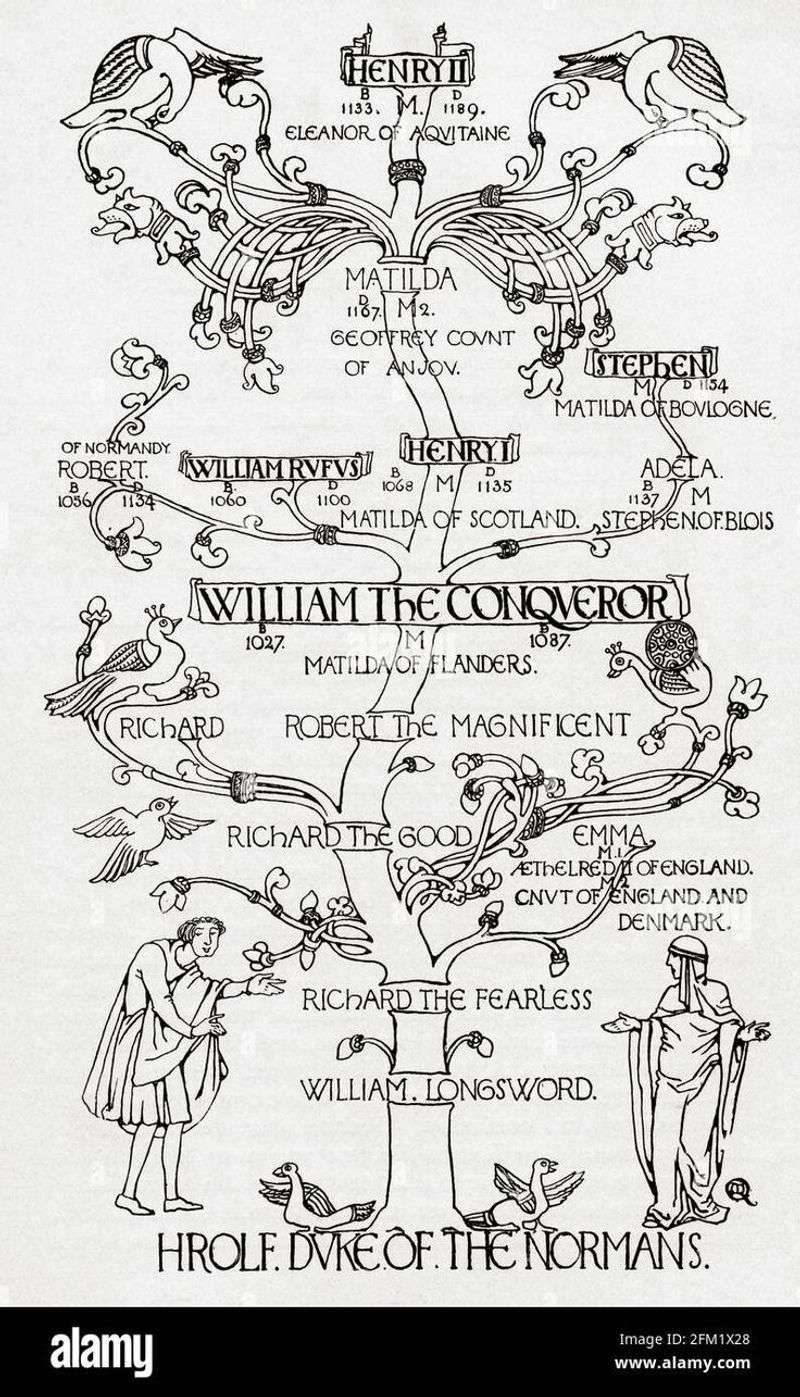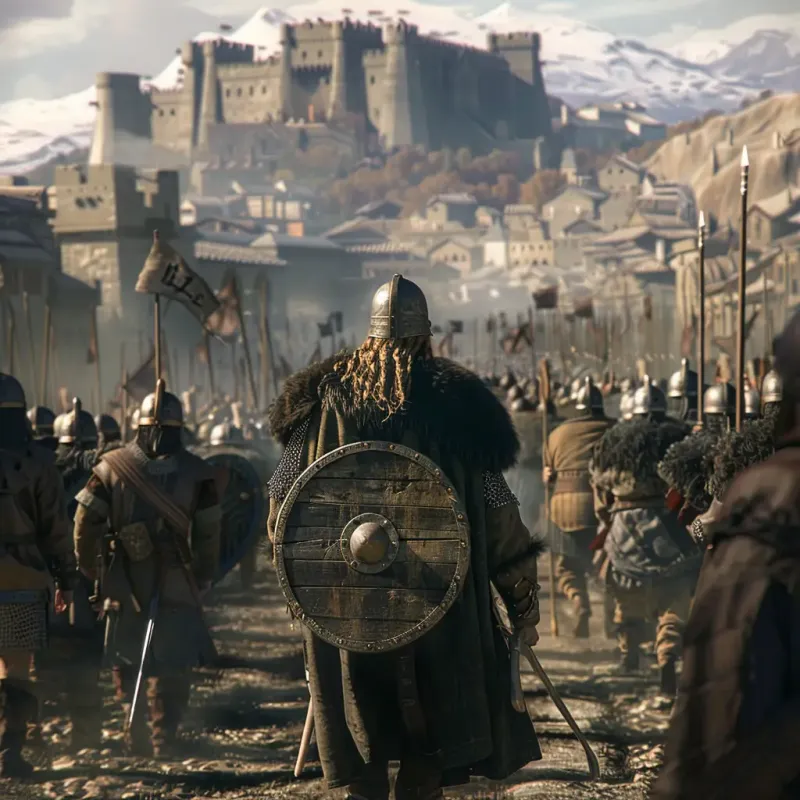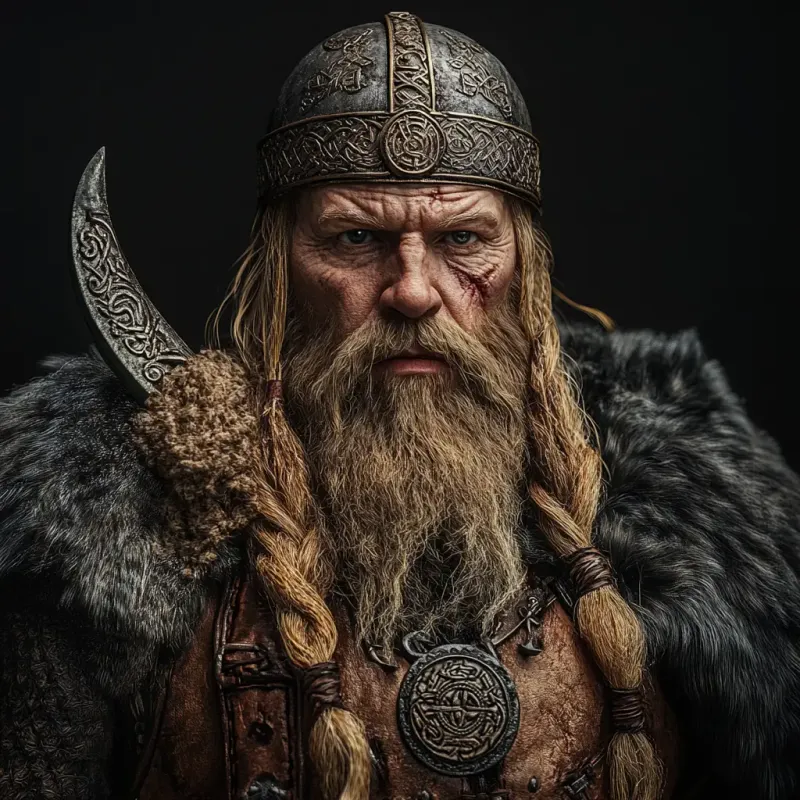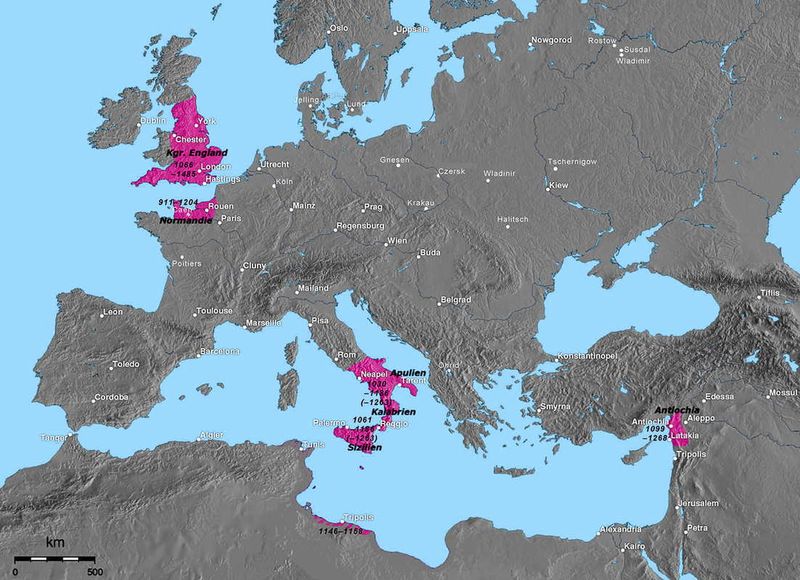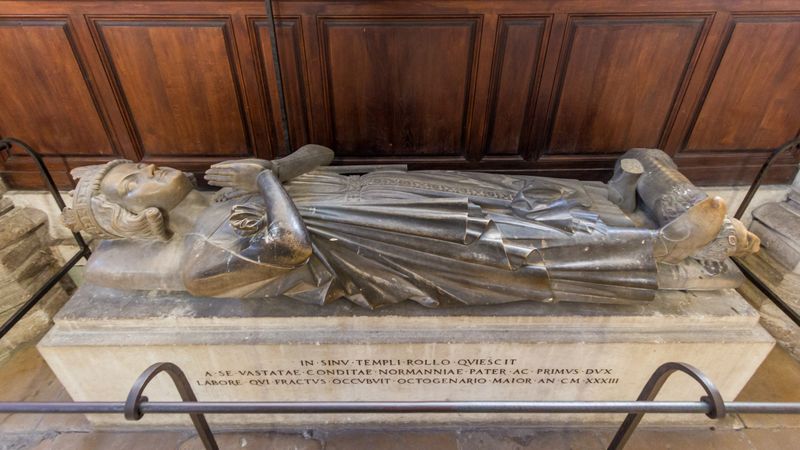Long before Normandy became famous for its cheeses and apple orchards, it was ruled by a fierce Viking named Rollo.
This towering figure transformed from a feared raider to the founder of one of Europe’s most influential dynasties in the early 10th century.
Rollo’s legacy shaped not just France but also England and beyond, creating ripples through history that can still be felt today.
1. 🛡️ Rollo Was a Fearsome Viking Raider
Terror swept through coastal villages whenever Rollo’s longships appeared on the horizon. Before becoming a ruler, this Norse warrior led devastating raids across northern Europe, particularly targeting the wealthy Frankish territories.
His forces would sail boldly up the Seine River, attacking settlements and monasteries along the way. Paris itself trembled under his assaults around 885-886 during a famous siege.
Rollo’s reputation for ruthlessness and military skill made him both feared and respected among friends and enemies alike. Even Frankish chronicles, written by his victims, acknowledged his tactical brilliance in warfare.
2. 👣 His Nickname Means “The Walker”
Standing head and shoulders above his fellow warriors, Rollo earned an unusual nickname that stuck throughout history. His Norse name “Hrólfr the Ganger” literally meant “Rollo the Walker” because legend claims no horse could support his massive frame.
Imagine this giant of a man marching alongside mounted warriors! His extraordinary size became part of his intimidating presence and contributed to his battlefield reputation.
While historical accounts may exaggerate his proportions, archaeological evidence does show Viking warriors were often taller than average for their time. Rollo’s impressive stature became central to his legendary status.
3. 📜 He Signed the Historic Treaty of Saint-Clair-sur-Epte (911 AD)
A moment of brilliant pragmatism changed European history forever in 911 AD. King Charles the Simple, desperate to end the relentless Viking raids, offered Rollo an unprecedented deal: land in exchange for peace and protection.
At Saint-Clair-sur-Epte, Rollo accepted control of the territory around Rouen (which would grow into Normandy). The shrewd Viking also promised to defend the kingdom from other raiders and to convert to Christianity.
Rather than continuing as a raider with uncertain fortunes, Rollo secured a permanent homeland for his people. This remarkable agreement transformed a band of Viking warriors into landed nobles almost overnight.
4. ✝️ Rollo Converted to Christianity
Splashed with holy water, the fearsome warrior who once sacrificed to Odin and Thor became Robert in the eyes of the Church. Rollo’s baptism marked a pivotal moment in his transformation from pagan raider to Christian ruler.
Historians debate whether his conversion was genuine faith or political convenience. Some chronicles suggest he maintained some pagan practices privately while publicly embracing his new religion.
Whatever his personal beliefs, this religious shift helped legitimize his rule to local populations and the broader European nobility. His conversion exemplifies the complex cultural merging that would define Norman identity—blending Norse traditions with Frankish Christianity.
5. 👑 He Became the First Duke of Normandy
From ship commander to land ruler, Rollo’s transformation reshaped European politics. Though not formally called “Duke” during his lifetime (he was known as Count or Jarl), he effectively established what would become one of medieval Europe’s most powerful duchies.
His governance blended Viking pragmatism with Frankish administrative systems. Rollo distributed lands among his followers while maintaining strong central authority, creating a feudal network of loyal Norse nobles.
Under his leadership, the region began its evolution from a Viking settlement into a sophisticated political entity. His success at state-building proved that his talents extended far beyond raiding and warfare.
6. 👪 He Is the Ancestor of William the Conqueror
Royal blood flows from this Viking warrior through European history. Rollo’s great-great-great-grandson, William the Conqueror, would dramatically change the course of history by conquering England in 1066.
This remarkable family connection means Rollo stands as a direct ancestor of the British royal family even today. Queen Elizabeth II could trace her lineage back to this former raider who settled in northern France.
Few historical figures can claim such a profound dynastic legacy. The Norman Conquest fundamentally transformed England’s language, laws, and culture—all stemming from Rollo’s decision to settle and establish a dynasty rather than continue raiding.
7. 🏰 Rollo Turned Vikings into Normans
Cultural alchemist might be Rollo’s most fitting title. Under his leadership, fierce Norse warriors gradually exchanged their longships for farmlands and their battle axes for the French language.
This remarkable transformation happened with surprising speed. Within just three generations, his descendants spoke French, built stone castles instead of wooden halls, and embraced chivalric ideals while retaining Norse military prowess.
Rollo encouraged intermarriage with local Frankish women, accelerating cultural assimilation. This blending created the unique Norman identity—combining Viking strength and adventurous spirit with Frankish sophistication and political structures—that would later reshape kingdoms across Europe.
8. 🔄 He Never Fully Abandoned Norse Traditions
Behind closed doors, the publicly Christian duke reportedly maintained connections to his Norse heritage. According to the historian Dudo of Saint-Quentin, Rollo made a dramatic statement before his death—dividing treasure among churches while simultaneously sacrificing Christian prisoners to Norse gods!
Archaeological findings in Normandy reveal persistent Norse cultural elements in early Norman settlements. Items like Thor’s hammer pendants appear alongside Christian crosses, suggesting a population navigating between two worldviews.
This cultural duality reflects Rollo’s practical approach to power and identity. He embraced what worked from both worlds, creating a unique cultural fusion that characterized early Norman society and influenced its distinctive development.
9. 🧭 His Legacy Extended Beyond France
Little could Rollo have imagined that his descendants would rule lands from Scotland to Sicily. His dynasty’s influence stretched far beyond Normandy’s borders, creating one of history’s most remarkable power networks.
Norman adventurers conquered southern Italy and Sicily by the 11th century. Rollo’s great-grandson Richard II sent knights to help Christian Spain against Muslim forces. Most famously, William the Conqueror’s invasion of England in 1066 forever changed that nation’s destiny.
Even the Crusades bore Rollo’s indirect influence, as Norman knights played crucial roles in these campaigns. The administrative and military innovations developed in Normandy under his dynasty helped shape medieval governance across Europe.
10. 🪦 His Final Resting Place is in Rouen
Magnificent Rouen Cathedral stands guard over what many believe to be Rollo’s final resting place. Though the original burial site has been modified over centuries, a commemorative tomb there honors him as Normandy’s founding father.
Nearby stands a striking statue depicting the Viking-turned-duke in all his imposing glory. Local traditions maintained connections to Rollo long after his death, with Norman dukes tracing their legitimacy through him.
Fittingly, Rouen itself embodies Rollo’s legacy of cultural fusion. The city blends architectural elements from various periods, including Viking influences, just as Normandy’s culture merged Norse and Frankish elements under his rule.
